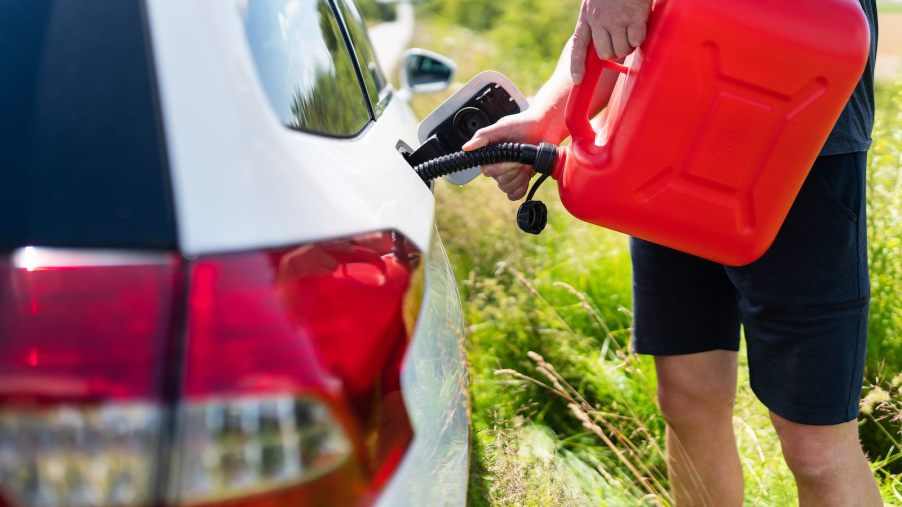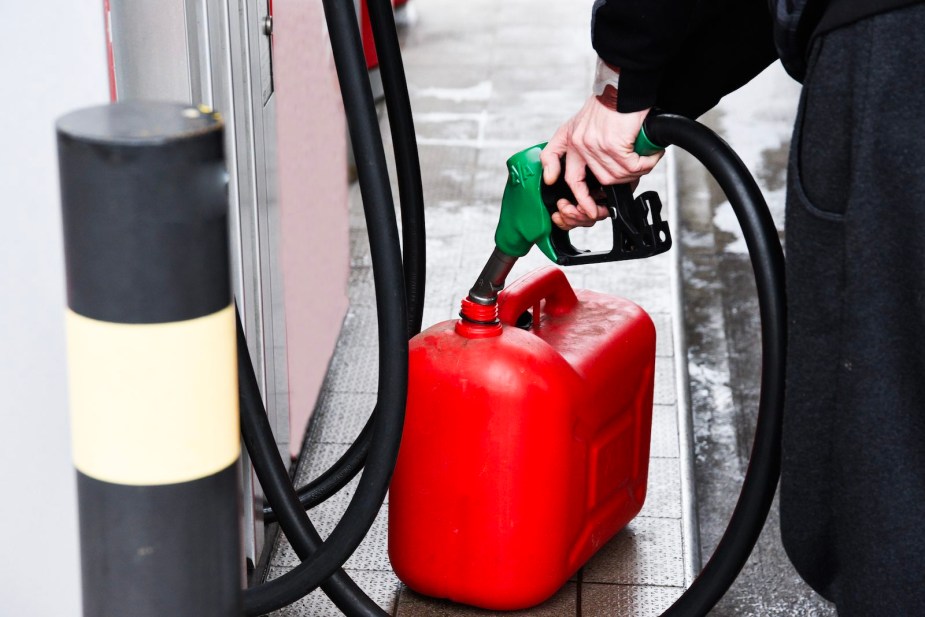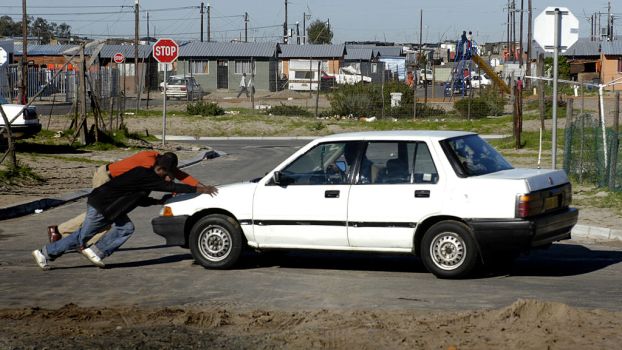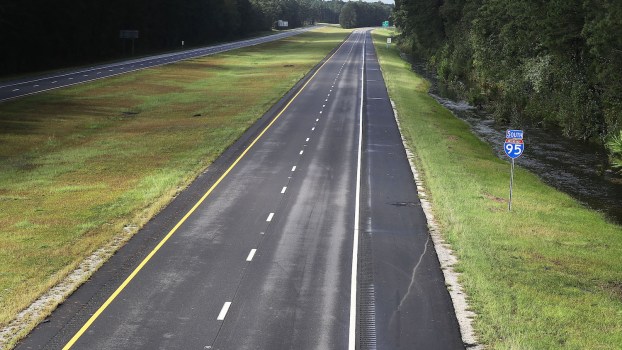
What to Do When Your Car Runs out of Gasoline
I woke up to the sound of the driver swearing at our car while it bucked, stalled, then lurched ahead. Finally it stalled out completely. She shrugged at me, “Out of gas.”
On a long roadtrip, I had closed my eyes to take a nap. My friend and co-driver thought we could get a few more miles out of a tank. It turns out we couldn’t. So here’s what happens when you run out of gasoline in your car, and how you should handle the situation with maximum safety in mind.
First of all, here’s what to expect as your car runs out of gasoline: Gasoline is a liquid that sits in your fuel tank. A pump pulls it from the bottom of the tank and sends it through fuel lines to your engine, which burns it. As a car truly runs out of gasoline its engine will lose power, then stall out. completely. But as the last gasoline sloshes back and fourth in your tank, some more might travel down this fuel line. In this case the engine might regain power and the car might surge ahead for a moment.
Your car might draw fuel from either the front or back of the tank. This means it is more likely to finally “run out” and stall while going downhill or uphill. So you might be coasting downhill with the needle on empty, but as soon as you hit a hill and begin to climb the car stalls instantly.

All this bucking and lurching on the road is dangerous. Running your car out of fuel can cause misfires or damage your engine in other ways. So if your car begins to lose power and lurch from a lack of fuel, it’s time to pull over. Get safely off the road, then shut your engine down. Finally, turn on your hazard lights/flashers.
Now that you’re safe, you must find a way to fuel up. The slick move is to call “roadside assistance.” Many drivers have roadside assistance services through a membership to AAA. If you aren’t a member, you may still have roadside assistance privileges through your insurance policy, so it’s worth pulling that out of the glovebox and reading the fine print.
A more old-fashioned solution is calling a friend who owes you a favor. If they are nearby they can fill up a fuel can and stop by to top you off. A last-ditch solution is to look up the nearest towing company, or service station. Call them and ask (in advance) how much they will charge to meet you with some gas. If you get lucky, they may already have a truck driving nearby and cut you a deal.
During my roadtrip, no AAA drivers took the offer to help me out. And I didn’t have any friends nearby who I could call. I ended up walking to the nearest gas station, buying a gas can and filling it up, then walking back to the stranded car.
If you are parked by the highway, a police office will probably stop to check on you. If you explain the situation and tell them you have help coming, they’ll put a sticker on your car with a time and tell you that you have a couple of hours to solve the problem before they have you towed. Some police departments have gas cans in the trunk of all their cruisers, for exactly this purpose. Their reasoning is that giving you a free gallon of gas to get you moving again is a good investment toward traffic safety. It’s worth asking, but I certainly wouldn’t count on this.
Next, find out the surprising true meaning of ‘E’ on your car’s fuel gauge, or see how running out of fuel could damage your car in the video below:





